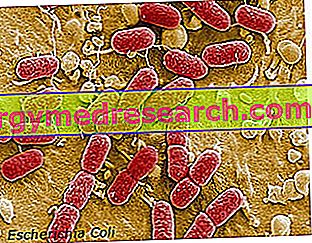Related articles: Hyperprolactinemia
Definition
Hyperprolactinemia consists of a persistent increase in blood prolactin levels.
Prolactin is a hormone produced by the pituitary gland, which, in normal conditions, has the function of stimulating the production of milk by the breast, in the period following the birth (puerperium).
Prolactin also has a role in the body's adaptive mechanisms to stress.
Blood levels of this hormone higher than normal produce various effects, including alterations of the menstrual cycle and anovulation (in women); loss of libido, impotence and reduction in the volume of the ejaculate (in humans) and possible secretion from the nipple (galactorrhea).
Over time, hyperprolactinemia can lead to bone demineralization (osteopenia and osteoporosis) and painful symptoms during sexual intercourse (dyspareunia).
Hyperprolactinemia can have physiological, pharmacological and pathological causes.
Sleep, pregnancy, nipple suction, orgasm, exercise and stress are among the physiological conditions that can cause an increase in prolactin production by the pituitary gland.
With regard to the pathological causes that most frequently cause an excessive and persistent prolactin secretion, the prolochoid-secreting pituitary adenomas (small benign tumors of the pituitary gland) should be mentioned.
Hypothalamic tumors and infiltrative pathologies of the hypothalamic-pituitary region can also cause hyperprolactinemia. Other causes include hypothyroidism (reduced thyroid function), chronic renal failure, liver cirrhosis and lesions of the thoracic-mammary region.
Hyperprolactinemia is also found in other endocrinological (such as acromegaly) or gynecological (polycystic ovary syndrome) disorders.
Finally, elevated prolactin values can be induced by taking certain drugs (iatrogenic hyperprolactinemia), especially antidepressants and tranquilizers.
Possible Causes * of Hyperprolactinemia
- Acromegaly
- Liver Cirrhosis
- Pregnancy
- Kidney failure
- Hypothyroidism
- Polycystic ovary syndrome
- Pituitary tumors



